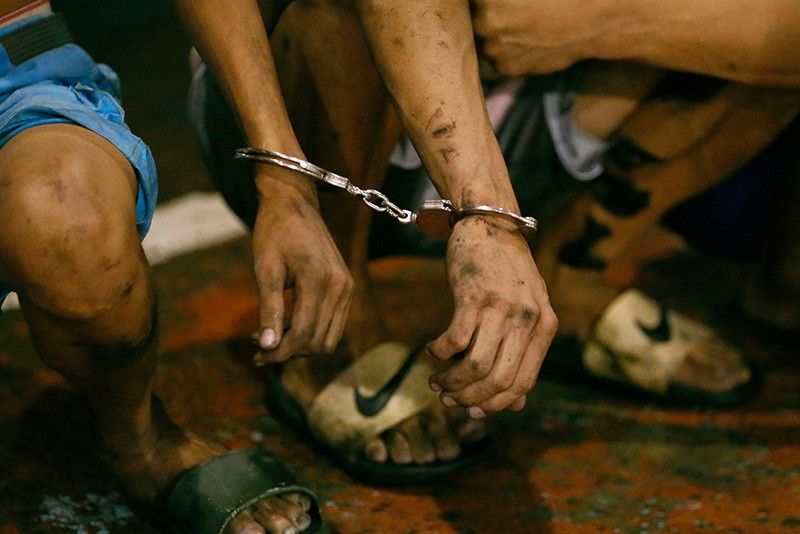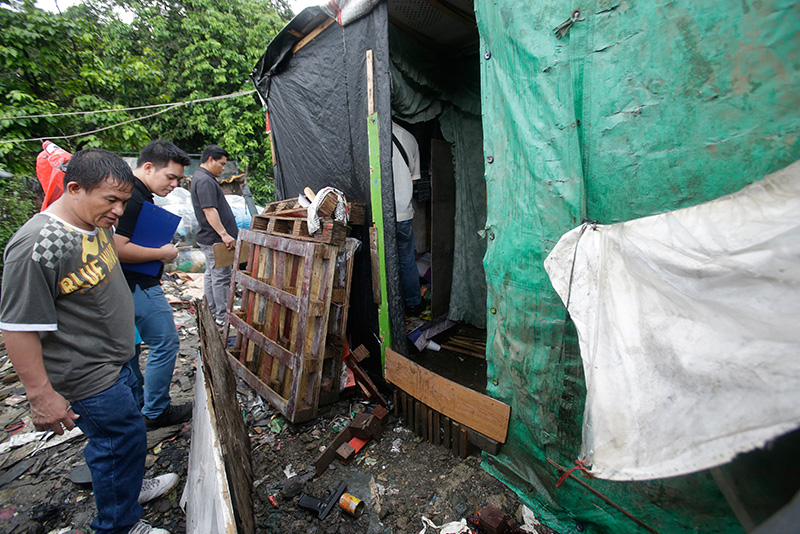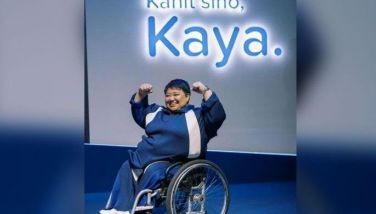Amnesty: Lack of probes in drug deaths creates climate of impunity

MANILA, Philippines — Presidential support for the police and a lack of "meaningful" investigations into drug-related deaths have created a climate of impunity that is a barrier to justice and accountability, an international rights watchdog said.
In its report on the Philippines' War on Drugs, Amnesty International said it examined 33 drug-related killings and found "a pattern of police inaction and impunity, often insurmountable obstacles for complainants pursuing legal action and difficulties facing human rights defenders working on these issues."
This, despite standard procedures for the Philippine National Police to probe the deaths, including those that happened in so-called legitimate police operations.
Amnesty noted that in at least 10 cases it documented, police did not even interview witnesses. In one case in Metro Manila, where a drug suspect was killed in a supposed "buy-bust operation", the family said nobody from the police went back for follow ups.
"Local human rights investigators examining drug-related killings described a similar pattern," Amnesty said in its report.
The group also raised concerns over the independence of agencies mandated to conduct investigations into the deaths, citing one case where a family filed a case with the National Bureau of Investigation over a family member killed in a drug operation.
"The relative told Amnesty International that, when the family first met with an NBI officer, the officer said they were under a 'directive' not to probe drug-related killings," Amnesty said. While the NBI processed the complaint and visited the crime scene, the family was also told "it was a 'futile' effort under the current administration."
Police have so far concluded investigations in 875 in 4,146 deaths under investigation, the Amnesty report notes, but also said that "not a single police officer had been prosecuted or dismissed from duty in relation to deaths during police anti-drug operations."
Amnesty said that "in killings carried out during formal operations, police reports are startlingly similar from case to case."
Philippine National Police Director General Ronald Dela Rosa has announced the suspension of all police anti-narcotics operations after a Korean businessman was allegedly abducted and killed by police officers with an anti-illegal drugs unit under the guise of a raid. Dela Rosa said the PNP will focus on an "internal cleansing" of the organization first.
The president has also since said, without citing sources, that around 40 percent of the PNP is corrupt. He has ordered the military to help arrest rogue cops.
'Presidential support'
Amnesty International noted that President Rodrigo Duterte's "promises to protect security forces from prosecution have undoubtedly helped create this climate of impunity."
Duterte has repeatedly said in his speeches that he will back the police since they are carrying out his orders. In the case of the death of Albuera, Leyte Mayor Rolando Espinosa while in a provincial jail, Duterte said that he "will not allow" the police officers involved in the shooting go to jail.

In this Oct. 5, 2016 file photo, a policeman inspects an area where a drug suspect was killed following a raid at an alleged drug den where two drug suspects were killed and about 90 people arrested during operations as part of the continuing "War on Drugs" campaign of President Rodrigo Duterte near the Payatas dumpsite community in suburban Quezon City, Philippines. AP/Aaron Favila, File
Superintendent Marvin Marcos, the head of the unit that served a search warrant on the detained Espinosa and that supposedly shot it out with him, was suspended and reinstated on the same day on Duterte's orders.
The president has, on the other hand, referred to the late mayor as a "son of a bitch" in speeches after the incident.
UN Special Rapporteur Agnes Callamard noted early into the Duterte administration that the president's statements on killing drug suspects were virtually a license to kill.
Amnesty noted that the lack of investigations — as well as a fear of reprisal by some victims who would rather not file complaints or follow up cases — may have led to copycat murders not related to drugs. The government has blamed a majority of around 7,000 drug-related deaths on vigilantes and on drug syndicates.
"Families and others interviewed by Amnesty International said it was an easy way for people with grudges to exact revenge and avoid repercussions," it said.
- Latest
- Trending































